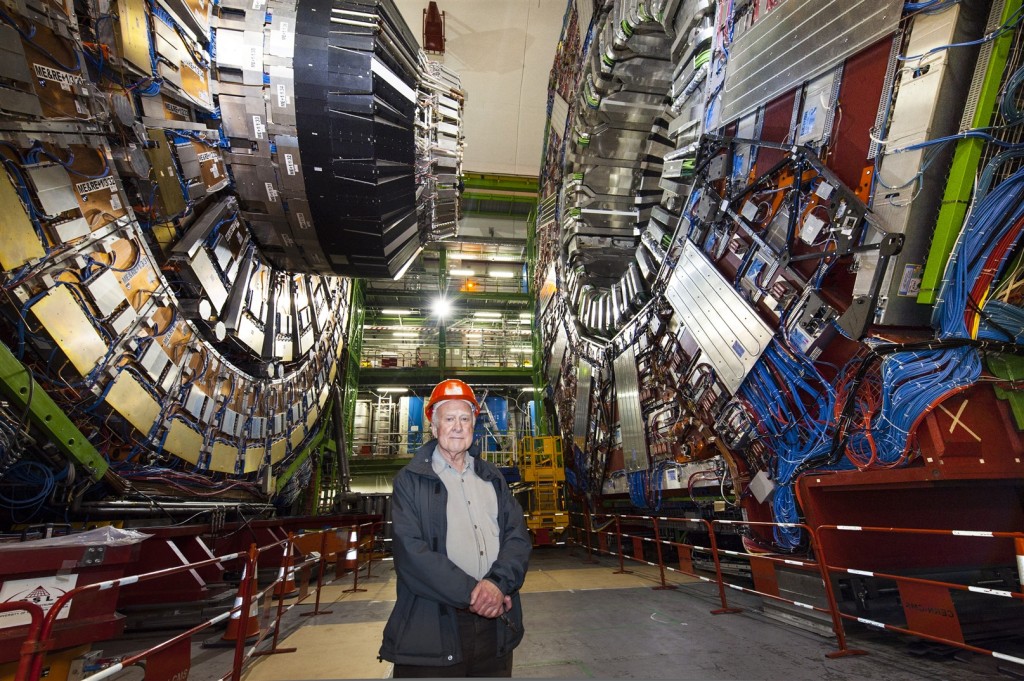Genesis begins with “In the beginning God …”. But those who deny the creation of the Universe by God, the self-existent Creator, as described in Genesis–the book of beginnings–the first book of the Bible, would very much like to eliminate the beginning itself.

I have reported before on various attempts to eliminate the beginning, even a big bang beginning in a singularity.1,2 Those who do attempt such a thing, think if they can find a mathematical description by way of some quantum gravity theory then it must also follow that the Creator is not needed and that that somehow eliminates Him. As an example of this the following was stated in 2015 on the Phys.org news site in relation to some theoretical research, which I have previously reported1 on, but it is worth reiterating. It was stated that
The universe may have existed forever, according to a new model that applies quantum correction terms to complement Einstein’s theory of general relativity. The model may also account for dark matter and dark energy, resolving multiple problems at once.3 (emphases added)
The desire is there for an eternal universe because it eliminates the Creator. What is interesting in this case is that it also intends to eliminate the need for dark energy and dark matter, which I have long said are fudge factors. There is no laboratory evidence for their existence; they are only invoked in cosmology and astrophysics because the standard model just does not describe what we observe without them. This is an admission that that is the case.
The other big big bang problem is the singularity itself. No one has a clue about the physics that should have operated if the fictional singularity was once reality. The mathematical descriptions used in modern cosmology—developed from Einstein’s general relativity—just don’t work when time and space no longer exist as is believed to be the case in the alleged singularity.4
Although the Big Bang singularity arises directly and unavoidably from the mathematics of general relativity, some scientists see it as problematic because the math can explain only what happened immediately after—not at or before—the singularity.
“The Big Bang singularity is the most serious problem of general relativity because the laws of physics appear to break down there,” Ahmed Farag Ali at Benha University and the Zewail City of Science and Technology, both in Egypt, told Phys.org.3 (emphases added)
The unbelievers rely on maths–the mathematics of some quantum theory–where they try to develop a viable quantum gravity theory for the Universe. The goal is to eliminate the singularity because of the necessary beginning it requires for the Universe. Then there are those Bible believers who have said that the big bang itself is described by the Genesis 1 account, in some allegorical fashion.5 But where will they be when the standard cosmology community adopts an eternal no-singularity universe?
However I think the main lesson to take from these type of musings is that “scientists” are no closer to finding the truth about the origin of the Universe than they were 100, 200 or 400 years ago. Just because they have PhD’s and can manipulate their mathematical theories, in no way does it mean that the theories they produce correctly describe the Universe we live in. It does show however their desire to rid themselves of the Creator, who they would otherwise need to yield to if they admitted He created the world and all that it contains.
References
- J.G. Hartnett, An eternal big bang universe, February 26, 2015.
- J.G. Hartnett, Rainbow gravity means an eternal universe, July 16, 2015.
- L. Zyga, No Big Bang? Quantum equation predicts universe has no beginning, February 9, 2015.
- J.G. Hartnett, The singularity–A ‘dark’ beginning, July 15, 2014.
- J.G. Hartnett, The big bang is not a Reason to Believe! May 20, 2014.






8 responses to “Quantum theory to eliminate the beginning of the Universe”
Then there are those Bible believers who have said that the big bang itself is described by the Genesis 1 account, in some allegorical fashion.5 But where will they be when the standard cosmology community adopts an eternal no-singularity universe?
St. Augustine held that the universe was entirely created instantaneously. That’s certainly compatible with a universe that looks eternal.
LikeLike
But quite obviously not one that eternally existed in the past.
LikeLike
Sure. But if the universe appears empirically to be static, then whether it always existed or was created is simply a philosophical dispute.
Since the allegorical approach to Genesis 1 is to take it as affirming only that God created the world, it would seem that the Augustinian view would be what Christians who presently believe in the Big Bang, would mostly switch over to.
LikeLike
And it would seem that big bang believers, whether atheist or professing Christian, do in fact use a quote from Augustine in relation to Christians not talking nonsense about science. His quotation from “De Genesi ad litteram” (or Taylor’s English translation “Literal Meaning of Genesis“(1982)) is about the heavens, the earth and the elements and is taken out of context. Augustine believed the earth was young and the admonition is against those who make up stuff about science contrary to the revealed Scriptures. And they ignore all the rest of Augustine’s orthodox theology. (See B. Zuiddam, Are creationists talking nonsense on science issues?, Journal of Creation 30(3):56-61, 2016.)
LikeLike
It is ironic when people claim that St. Augustine (or any other classical or medieval author) were simply unaware of the notion that the world had existed for eons and underwent perpetual change, and would have accepted modern theories if only they had been known, given that the pagans of his time believed that.
That said, if an allegorical interpretation (his view of instantaneous creation certainly is) can be admitted, then surely it could also be entertained that the universe is in fact very old, and that the Earth/life on it may be as well (evolution is nonsensical pseudophilosophy, but that’s a separate question from the age of life)?
Note also that I’m not disputing the age of the human race itself.
LikeLike
Ultimately though Augustine’s belief of instantaneous creation is not fully consistent with the Genesis 1 account. So though philosophically you have a point — if you allegorize one way why not another — but if I was to err on the side of caution I would say his view was more in line with YEC 6-day creation than OEC old earth.
LikeLike
You would agree, I assume, that some parts of the Bible are allegorical, no?
If so, then an allegorical interpretation cannot be ruled out a priori concerning Genesis 1. Now, discerning it’s originally intended meaning of the text can be difficult because of how far removed we are from the society that it was written for (although some arguments can be made, for example, Moses certainly would have had more reason to teach about God’s sovergienty and creation of the universe than about the precise chronology of it). So since it would seem to be an open question, and there is as a matter of faith a correspondence between the teaching of Genesis and reality (such that evidence that Moses intended to assert X is evidence that X is in fact true, and by contrapositive evidence that X is not in fact true is evidence that Moses dos not intend to assert it), then surely empirical evidence* concerning how old the world is (radioisotope dating of rocks, the starlight issue, etc.) should be admissible in consideration of the matter?
*Note that I’m not addressing the strength of this evidence or even the assumptions behind counting it as indicative of an old universe, only addressing in principle the question of whether or not it is a valid consideration.
LikeLike
Some parts of the Bible are allegorical/symbolic, the prophetical books etc, but Genesis 1-11 are clearly intended to be narrative history. Interpreting them from a historical grammatical context we can say they are literal history but the better way to describe it is as straightforward history. I can’t agree with your notion in terms of how to interpret Genesis (i.e that it could be allegorical) but do agree that interpeting evidence is a matter of faith. That is where your worldview informs you what you are willing to accept as evidence of past events. We all have a worldview and interpretations of radio-isotope dating, the starlight travel-time etc depend on that worldview. Facts by themselves do not give us a history of past events.
LikeLike